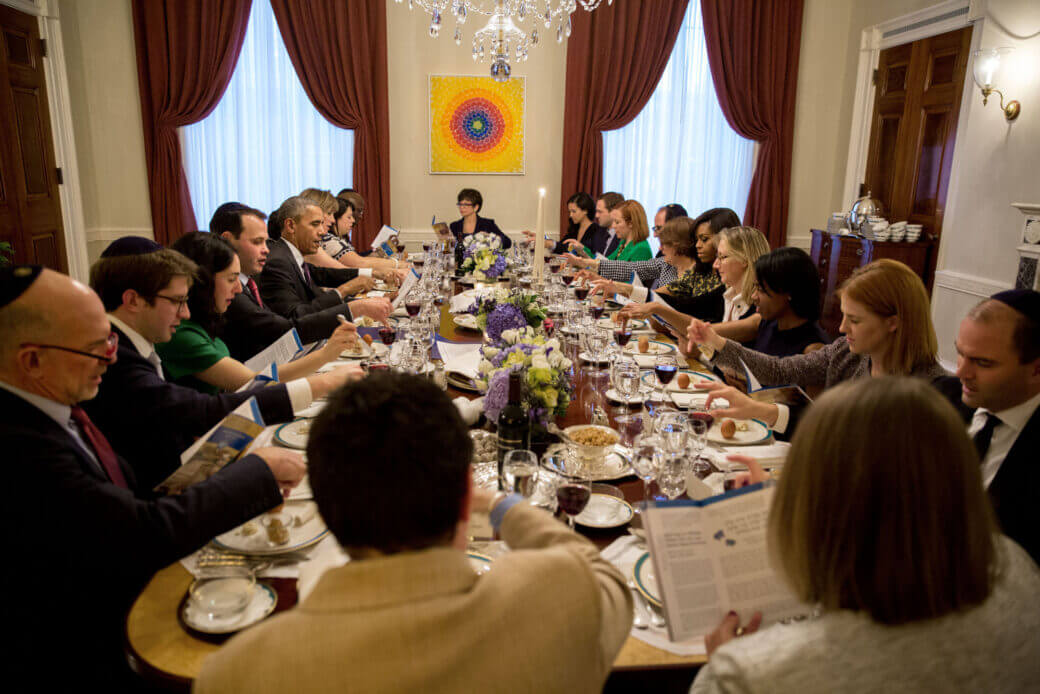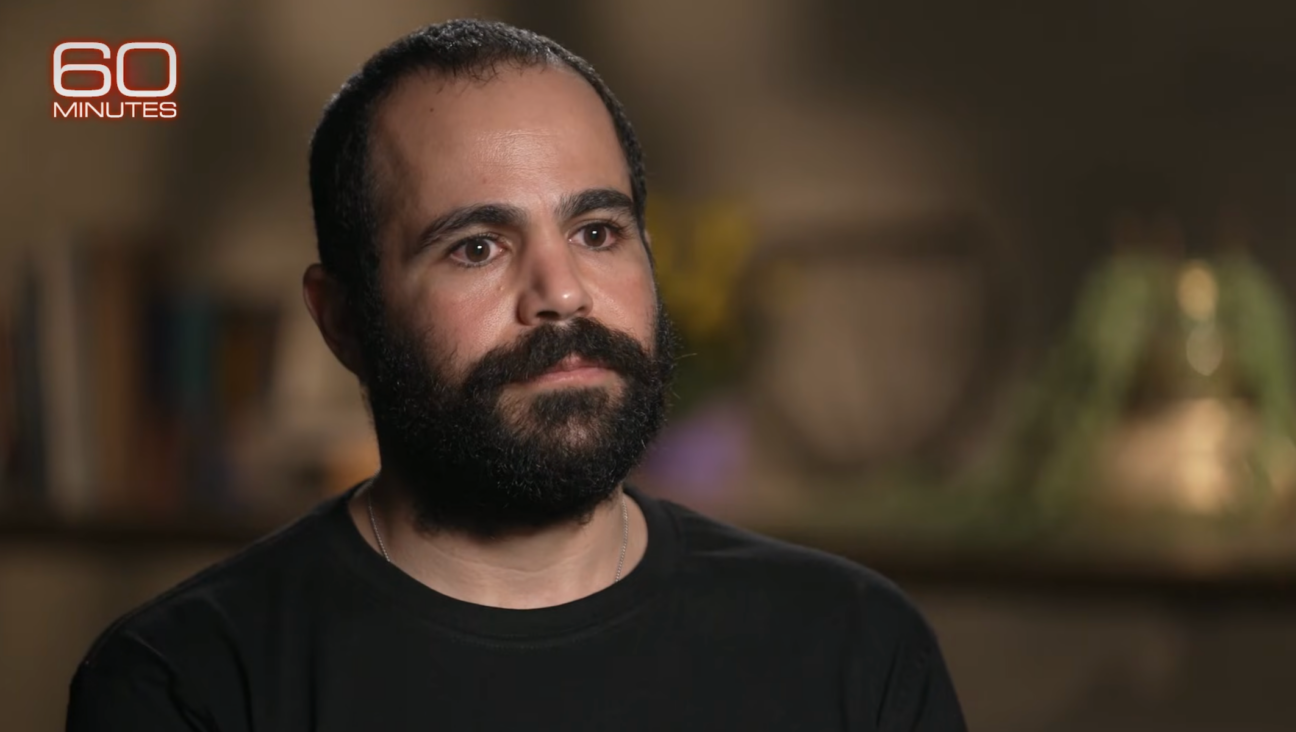In Resolution, Congress Backs Israel’s Actions in Gaza
Washington — The U.S. Congress completed Friday its show of support for Israel’s attack on Gaza with an overwhelming majority of House members approving a non-binding resolution backing Israel. On Thursday the Senate adopted a similar resolution by unanimous consent.
The resolutions not only demonstrated once again the wall-to-wall support Israel enjoys among Capitol Hill lawmakers, but also managed unite a wide spectrum of advocacy groups in praising congressional actions.
The American Israel Public Affairs Committee, the pro-Israel lobbying powerhouse, issued statements applauding the passage of the resolutions. “While Israel is forced to defend its citizens from those who aim to destroy her, America has, as always, remained a voice of strength and reason,” an Aipac statement read. The congressional resolutions express “vigorous support and unwavering commitment to the welfare, security, and survival of the State of Israel” and demand that Hamas end rocket attacks against Israel.
Dovish Jewish groups, while more cautious in their reaction, also welcomed the congressional outcome, since it included a mention of the need for a cease-fire “as soon as possible” and for the advancement of a two-state solution to the Israeli–Palestinian conflict.
A spokesman for Americans for Peace Now, Ori Nir, said the group views the resolution as a success. “It is a success because our messages were well received by the Hill staffers who drafted it. Elements that were very important to us all along are featured front and center in this resolution,” Nir said.
J-Street’s executive director Jeremy Ben-Ami took a slightly more reserved approach, saying his organization has long called for U.S. leadership in order to reach a cease-fire and therefore “supports congressional action that endorses these aims.”
Though the call for an immediate cease-fire, issued by dovish groups in messages to their supporters, was not echoed in full in the final text of the resolutions, the groups did play, according to congressional sources, a role in helping shape the language. The sources said representatives from at least two dovish organizations were presented with drafts of the resolutions in early stages and that the House Committee on Foreign Affairs took into consideration many of the issues raised by these groups. A source involved in the talks described the input of these groups as “significant.”
“Sometimes groups come to us and ask for their dream positions, but even if they don’t get everything, they can be pleased with the outcome,” a senior congressional staffer said.
The call for an immediate cease-fire was at the heart of the debate between the dovish groups and Aipac, which organized a massive drive for congressional statements supporting Israel.
Aipac welcomed the final language, which included a call for cease-fire, but a Friday statement by the group made it clear that the group opposes an unconditional call for cease-fire, such as that adopted by the United Nations Security Council Thursday. “By calling for an immediate cease-fire without expressing these conditions, the Security Council undermines the prospect for a durable and sustainable end to the conflict,” stated an Aipac press release. The lobby also “expressed its disappointment” with the U.S. administration for its decision not to veto the Security Council resolution. Aipac’s criticism of the Bush administration is seen as rare and unusual, since the lobby has consistently praised the administration’s views and actions regarding Israel.
The Forward is free to read, but it isn’t free to produce

I hope you appreciated this article. Before you go, I’d like to ask you to please support the Forward.
At a time when other newsrooms are closing or cutting back, the Forward has removed its paywall and invested additional resources to report on the ground from Israel and around the U.S. on the impact of the war, rising antisemitism and polarized discourse.
Readers like you make it all possible. We’ve started our Passover Fundraising Drive, and we need 1,800 readers like you to step up to support the Forward by April 21. Members of the Forward board are even matching the first 1,000 gifts, up to $70,000.
This is a great time to support independent Jewish journalism, because every dollar goes twice as far.
— Rachel Fishman Feddersen, Publisher and CEO
2X match on all Passover gifts!
Most Popular
- 1

Film & TV What Gal Gadot has said about the Israeli-Palestinian conflict
- 2

News A Jewish Republican and Muslim Democrat are suddenly in a tight race for a special seat in Congress
- 3

Fast Forward The NCAA men’s Final Four has 3 Jewish coaches
- 4

Culture How two Jewish names — Kohen and Mira — are dividing red and blue states
In Case You Missed It
-

Books The White House Seder started in a Pennsylvania basement. Its legacy lives on.
-

Fast Forward The NCAA men’s Final Four has 3 Jewish coaches
-

Fast Forward Yarden Bibas says ‘I am here because of Trump’ and pleads with him to stop the Gaza war
-

Fast Forward Trump’s plan to enlist Elon Musk began at Lubavitcher Rebbe’s grave
-
Shop the Forward Store
100% of profits support our journalism
Republish This Story
Please read before republishing
We’re happy to make this story available to republish for free, unless it originated with JTA, Haaretz or another publication (as indicated on the article) and as long as you follow our guidelines.
You must comply with the following:
- Credit the Forward
- Retain our pixel
- Preserve our canonical link in Google search
- Add a noindex tag in Google search
See our full guidelines for more information, and this guide for detail about canonical URLs.
To republish, copy the HTML by clicking on the yellow button to the right; it includes our tracking pixel, all paragraph styles and hyperlinks, the author byline and credit to the Forward. It does not include images; to avoid copyright violations, you must add them manually, following our guidelines. Please email us at [email protected], subject line “republish,” with any questions or to let us know what stories you’re picking up.















